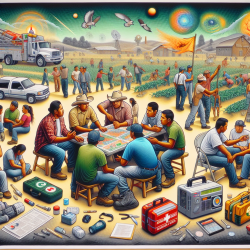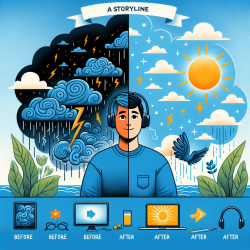Natural disasters pose significant risks to all communities, but certain populations are more vulnerable due to socio-economic and language barriers. The research article "Assessing Disaster Preparedness among Latino Migrant and Seasonal Farmworkers in Eastern North Carolina" sheds light on the unique challenges faced by Latino migrant and seasonal farmworkers (MSFWs) in preparing for such events. This blog explores key findings from the study and offers guidance for practitioners aiming to improve disaster preparedness strategies.
Understanding the Challenges
The study highlights that MSFWs often lack essential resources and information needed for effective disaster preparedness. Key barriers include:
- Language Barriers: Many MSFWs have limited English proficiency, making it difficult to access information that is primarily available in English.
- Lack of Resources: Many do not have emergency kits or evacuation plans due to financial constraints and lack of awareness.
- Cultural Differences: Traditional methods of communication may not resonate with this community, necessitating culturally tailored approaches.
Effective Strategies for Improvement
Practitioners can enhance their skills by implementing the following strategies based on the study's findings:
- Culturally Competent Communication: Develop materials and alerts in Spanish and use culturally appropriate methods such as "charlas" (talks) to disseminate information.
- Community Engagement: Collaborate with trusted local organizations like schools and health clinics to build trust and ensure information reaches the intended audience.
- Utilize Technology: Leverage text message alerts and social media platforms popular among the community to provide timely updates during emergencies.
The Importance of Further Research
The study underscores the need for ongoing research to better understand the perceptions and needs of MSFWs. Practitioners are encouraged to engage in community-based participatory research (CBPR) methodologies that involve MSFWs in the research process, thereby fostering empowerment and ownership of disaster preparedness plans.
To read the original research paper, please follow this link: Assessing Disaster Preparedness among Latino Migrant and Seasonal Farmworkers in Eastern North Carolina.










